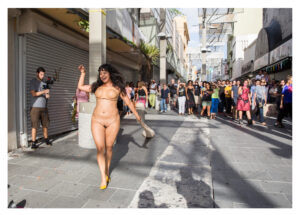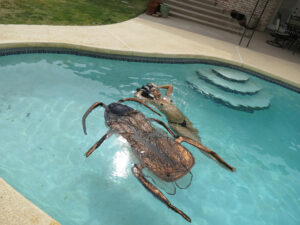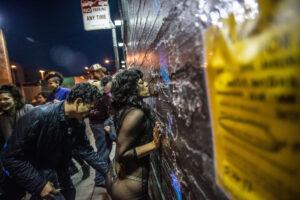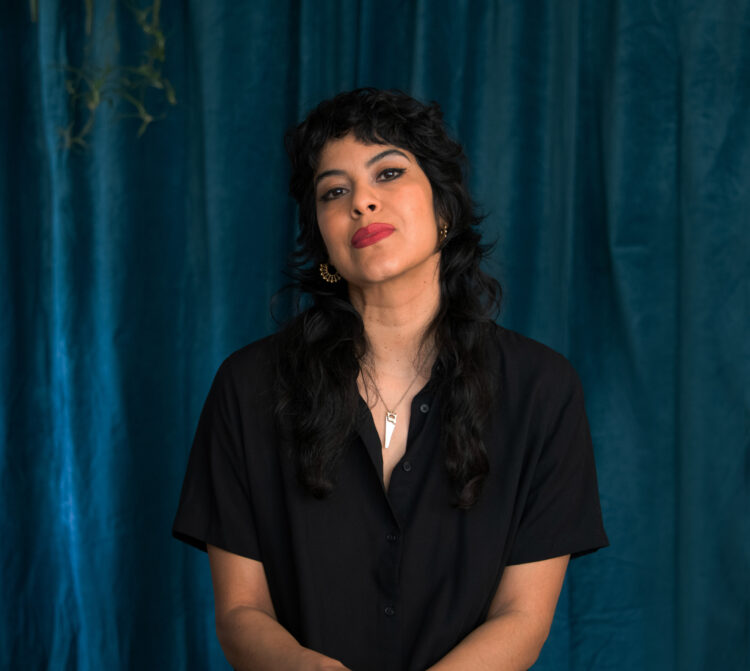
Xandra Ibarra
Oakland, CA
Xandra Ibarra is Oakland-based interdisciplinary artist from the US–Mexico border region of El Paso–Juárez who sometimes works under the alias La Chica Boom. Ibarra uses performance, video, and sculpture to address abjection and joy and the borders between proper and improper racialized, gendered, and queer subjects. Ibarra’s work has been featured at Ex Teresa Arte Actual, Mexico City; El Museo de Arte Contemporáneo, Bogotá; the Broad, Los Angeles; Yerba Buena Center for the Arts, San Francisco; and Joe’s Pub, New York, to name a few. Recent residencies include those at the Bemis Center for Contemporary Arts, the Vermont Studio Center, Marble House Project, and Headlands Center for the Arts. She has been awarded a Lucas Artists Fellowship for Visual Arts, the Queer|Art|Prize for Recent Work, the Eisner Prize for Film/Video, an Art Matters Fellowship, a Murphy & Cadogan Contemporary Art Award, an NALAC Fund for the Arts grant, and the Franklin Furnace Performance and Variable Media Award. As Ibarra is a community organizer, her work is located within immigrant, anti-rape, and prisonabolitionist movements. Since 2003, she has actively participated in organizing with INCITE!, a national feminists-of-color organization dedicated to creating interventions at the intersection of state and interpersonal violence. She is an active member of Survived and Punished in California.
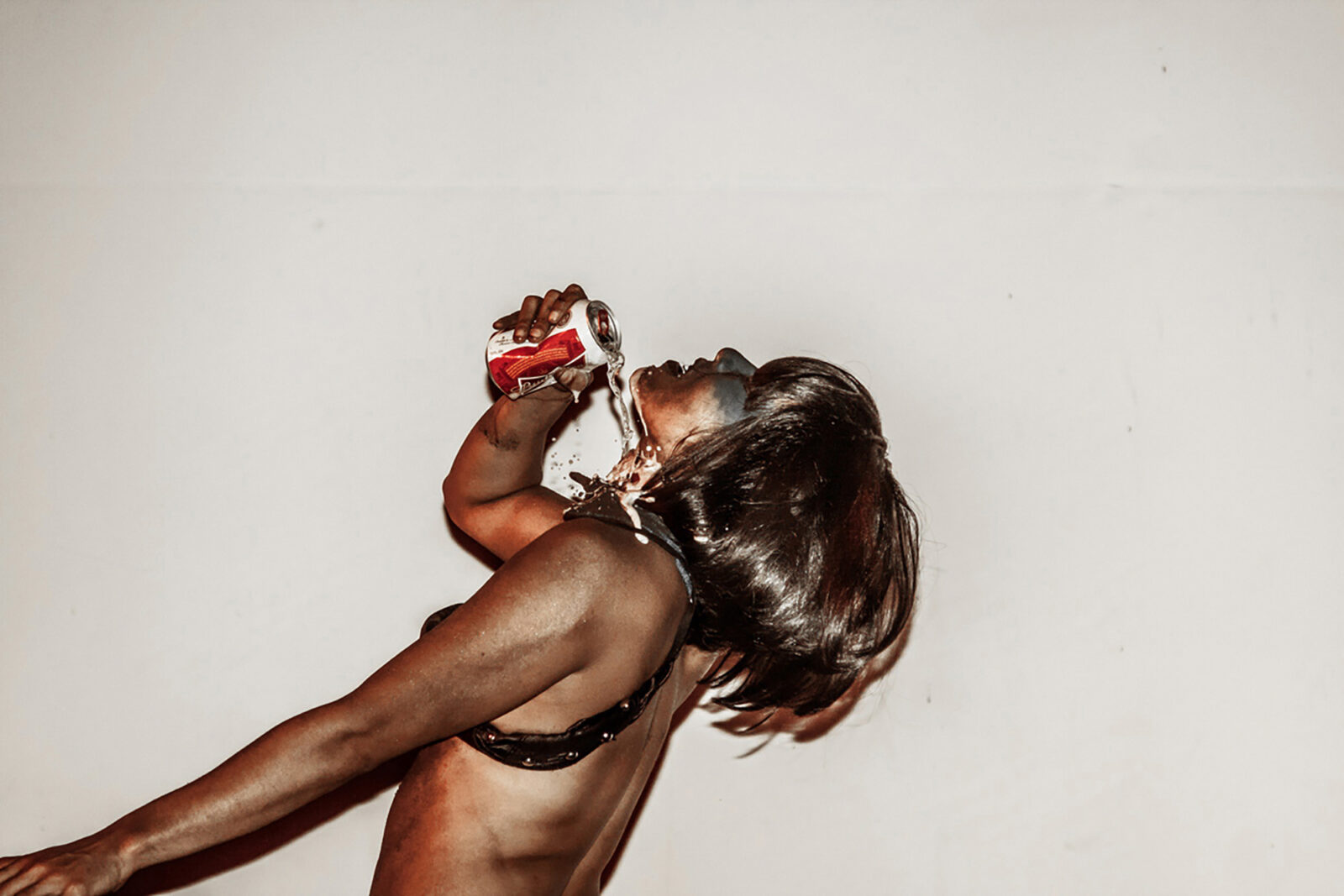





Fuck My Life.
Turn Around Sidepiece.
Spictacle 1 – Dominatriz Del Barrio.
Nude Laughing.
Molting in Pool – Ecdysis Photo Series.
Hook Up Displacement Tour.
Unsettled Agreements (or Political Constipation)
Xandra Ibarra is an Oakland-based artist who uses performance, video, and sculpture to address abjection and joy and the borders between proper and improper racialized, gendered, and queer subjects.
Artist BioIbarra and other invited performers will undergo colonic hydrotherapy while reading the Treaty of Guadalupe Hidalgo (1848) and various American Indian Treaties to reflect on the so-called peace treaties between the United States and Mexico and individual sovereign American Indian nations. Using the site of the upset colon and various ports of entry, I and other collaborators will read selected treaties aloud at selected land sites while undergoing colonic hydrotherapy. Following the performances, viewers and participants will be asked to participate in discussion to copy edit the more difficult, or “crappy,” parts of the examined treaties. My hope is to parodically and critically address the vocabulary, semantics, and performance of these agreements, and the resulting political condition and irresolvable turmoil that remain between nations and in our bodies—a constipated national discourse. I will conduct research with the US National Archives and Records Administration, and archival documents, archivists, and performers directly affected by the enactment of specific treaties. Ultimately, my hope is to create a series of performances that foster dialogue, critically engage (and edit) the historical documents that structure the land we live on, and reimagine the cultural production of historically and geographically specific colonial subjects.



